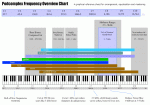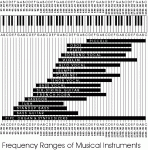I really don't have any super secret tips that'll automatically help you out, being the fact that they don't exist. Every recording is different. Here's my mixing process to get things sounding as good as they can, with my home setup.
1. Recording. This is the first step of a good mix. Make sure your recording environment is treated. Make sure you deliver great takes when you track the vocals. The thought "Oh, I'll just fix it in the mix" is just being lazy and really, you can't fix what's already broken, you can only cover it up.
2. EQ. Don't do too much that's unneeded. Most people hear "you have to run a high pass at 80Hz and clean up the Mud at 400Hz, and blah blah blah.." ... Once again, each recording is different. Here's the wise thing to do. Take a 7-band EQ, and turn the Q as high up as it goes, and sweep through frequencies until you find VERY ANNOYING / EAR PIERCING frequencies and reduce until it sounds better. When working with an EQ, always try to reduce bad frequencies, rather than boost. If you're still lacking the fullness, or clarity, then slightly and gently boost where it's needed... You obtain clarity from 7K+, but you also get "air" and "hiss" so be aware and listening. Don't trust the nobs, always trust your ears.
3. Compress. I suggest you learn how to compress and how it works if you don't already know, to make your life easier.
4. Less is more. People try to do wayyy too much, and in the end it makes things cluttered and sounds like issh. If you can achieve fullness and clarity from just running one vocal track and not stacking/doubling then by all means do it. I was talking to E.Dan about a year ago, and he told me that Wiz only runs a Lead on his tracks.
5. Try and fail, and then try again.
I hope this advice helps some what. I feel like I'm ranting though.



